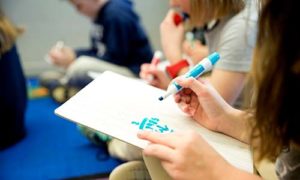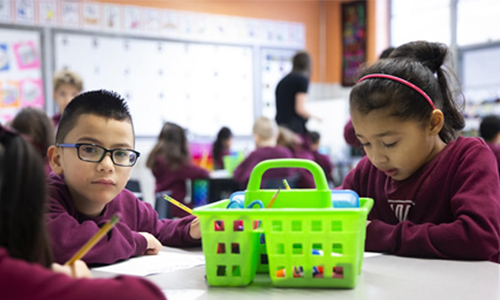

The impact of English Learner reclassification on high school reading and academic progress
This study estimates the causal impact of 8th grade English learner (EL) reclassification on high school English language arts (ELA) standardized test scores, SAT (Scholastic Aptitude Test) reading, and on-track to graduate status.
By: Angela Johnson
Topics: High-growth schools & practices, English Language Learners, Reading & language arts


This paper contributes novel causal evidence for the impacts of kindergarten entry age on academic growth in the first three years of school.
By: Angela Johnson, Megan Kuhfeld
Topics: Growth modeling, Early learning


Through a series of simulation and empirical studies, we produce scores in a single-cohort repeated measure design using sum scores as well as multiple IRT approaches and compare the recovery of growth estimates from longitudinal growth models using each set of scores.
By: Megan Kuhfeld, James Soland
Topics: Growth modeling, Social-emotional learning


In this study, we conducted empirical and simulation analyses in which we scored surveys using item response theory (IRT) models that do and do not account for response styles, and then used those different scores in growth models and compared results.
By: James Soland, Megan Kuhfeld
Topics: Measurement & scaling, Growth modeling, Social-emotional learning


Proportional relationships decluttered—at last!
Math experts detail an elegant new approach to teaching this conceptual cornerstone of advanced mathematics.
Topics: Math & STEM, Academic content


How to advance equity in gifted education
Karen Rambo-Hernandez shares insights from her work exploring how schools and districts can improve opportunities for students by changing the reference group for identifying gifted students.
By: Beth Tarasawa
Topics: Empowering educators, Equity


Study: Summer school for EL students could boost 4-year graduation rates
A summer school program for high school English learners who have lived in the U.S. for less than three years increased the number of core courses those students took that are required for graduation.
Education Dive
Mentions: Angela Johnson
Topics: Equity, College & career readiness, English Language Learners


